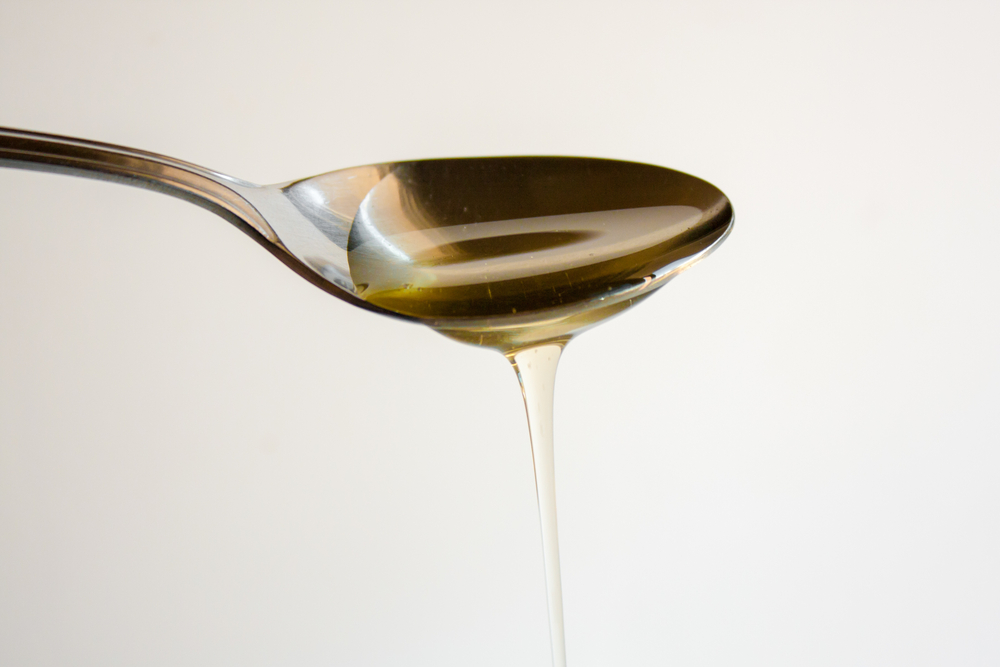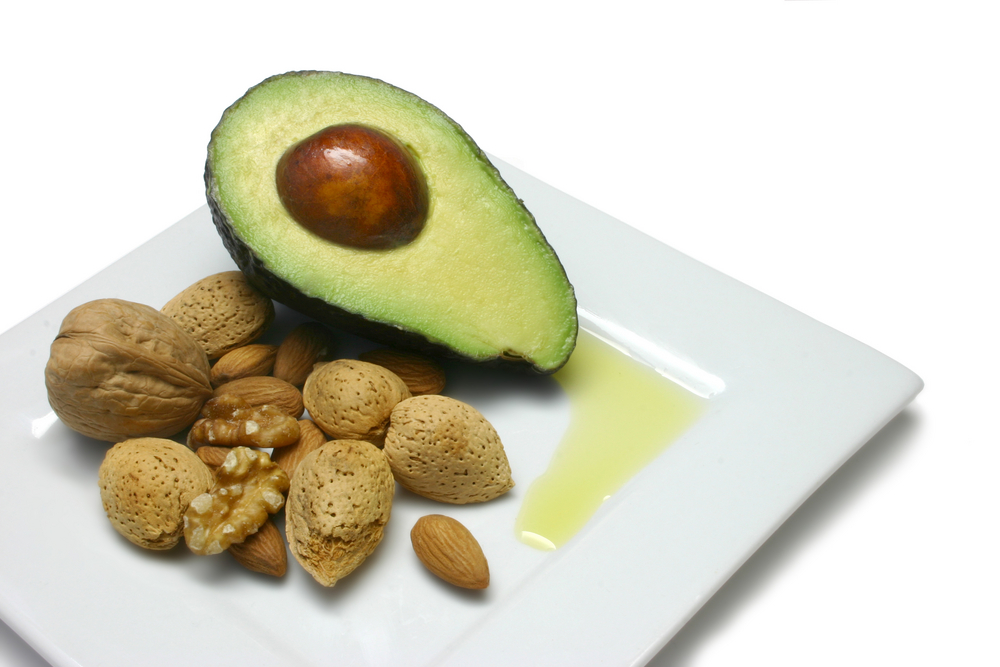Let’s talk about hormones. Not the kind that got you all starry-eyed before your high school prom, or the kind that make you crave sugar once a month. Today, I want to talk to you about the five sneaky hormones that could be getting in the way of your beauty goals!
But before we dive into the fascinating science that hormone researchers have been conducting lately, let’s take a few seconds to review what hormones are and how they affect everything from our weight to our reproductive health.

Hormones play a big role in your mood and weight. As you’ll see in this post, Beauty Detox helps naturally optimize your fat loss hormones!
Getting to Know Your Hormones
On a basic level, hormones are chemicals that travel throughout the body in order to undertake certain biological processes, including everything from growth to digestion to reproduction and more. It is hormones, for instance, that tell a growing fetus to produce two arms, just as it is hormones that alert your body to incoming nutrients and the need to begin the digestive process.
Hormones are produced by the glands that make up the endocrine system, including the thyroid, the adrenals, the glands of the pancreatic islets, the female ovaries and the male testes. You’re probably most familiar with these last two. In women, the ovaries are responsible for the production of the hormone estrogen, while in men, the testes are in charge of creating testosterone. All told, humans have about 50 different hormones [1]; having any of these out of whack can lead to issues in the body.
Take, for example, the process of digestion. When food passes from the mouth, through the esophagus and into the stomach, a host of different hormones are activated. Some hormones trigger the secretion of digestive enzymes, others stimulate the muscle contractions needed for digestion, while still others regulate blood flow to the stomach and flow of water and enzymes between the stomach and the blood stream.
As digestion occurs, other hormones provide “status updates” from the digestive tract to the brain. It is hormones, for example, that inform the brain how much fat is currently stored in the body (allowing decisions to be made whether to process incoming nutrients for immediate energy or store them for later use) and that control appetite levels so that the body does not attempt to bring in more food than is necessary.
Obviously, it is these messenger hormones that offer some of the greatest potential for the hormonal control of obesity. Imagine, if we could simply tweak the hormone levels in the brain in order to eliminate cravings for unhealthy foods. Or imagine if we could boost metabolism without subsequently increasing appetite. According to studies on the five little-known hormones that could be interfering with your weight loss efforts, this could – someday – be possible…

An abundance of nutrient-rich, plant foods throughout the day will help keep your ghrelin levels in check!
Ghrelin
Popularly known as “the hunger hormone,” ghrelin stimulates appetite and prompts the brain to send the signals needed to increase food intake. As a result, it probably won’t surprise you to hear that scientists are watching this hormone closely for possible interventions that could be used in reducing obesity!
One such study on ghrelin’s affects involved monitoring 18 healthy, non-obese adult subjects on three separate mornings [2]. On the first day, the subjects skipped breakfast and were then shown pictures of different low- and high-calorie foods, including salads, fish, vegetables, chocolate, cake and pizza. On the second two days, participants consumed breakfast and viewed the same food images 90 minutes later, but on one of these days, they were given either an injection of saltwater or an injection of ghrelin 50 minutes after breakfast. On each day, test subjects were asked to rate how appealing they found each food that was presented.
Goldstone’s team found that subjects demonstrated a stronger than usual preference for the higher-calorie foods on the day they received the ghrelin shot. In other words, ghrelin produces a greater levels of hunger and cravings for higher calorie foods.
This helps explain why Beauty Detox recommends eating when hungry (not restricting consumption of healthy foods), and eating plenty throughout the day. I’ve said this many times, but people are most always surprised by how much I eat when they see me in person, in eating action! My portion sizes are pretty huge, but filled with high nutrient, high fiber plant foods. If you’re feeling hungry, you’re setting yourself up for failure. Because when you don’t get enough healthy nutritious food in your daily diet and feel satisfied, your ghrelin levels can shoot through the roof. And that can lead to binging on higher calorie foods — particularly at night.

Corn syrup, agave and other refined fructose sources can disrupt your leptin hormones.
Leptin
While ghrelin stimulates hunger, leptin suppresses it by telling the brain how much body fat is present, as well as whether or not that level needs to change based on metabolic and environmental demands. And as another small, but fascinating study, recently published in the New England Journal of Medicine by a group of Australian researchers [3], points out, understanding this hormone could be just as important when it comes to weight loss.
In this case, the team of researchers set out to understand why it is that nearly 90 percent of people who lose a significant amount of weight gain it back over time. To test their hypothesis that hormones are at fault, they recruited 50 overweight or obese subjects, put them on a restricted calorie diet to lose at least 10 percent of their body weight and then kept them on a maintenance diet designed to keep off the pounds over a year’s time.
Throughout the study, subjects’ hormone levels were tracked and compared to their initial measurements. As expected, the 34 participants who successfully completed the initial weight loss regimen experienced an immediate drop in leptin levels by roughly 67 percent, resulting in increased appetite and slower metabolism. After a year of the weight loss diet, average leptin levels were still down by about 33 percent, though they began to climb again as subjects regained weight.
One thing about leptin that’s especially important to note: it can be easily disrupted by certain substances, such as refined fructose. Researchers have found that concentrated fructose, as you find in soda (or agave nectar!) can mess with your leptin levels and make it harder to feel full. [3a] This is a big reason why soda produces weight gain. And a huge Beauty Detox no-no is sweeteners loaded with refined fructose, including agave. I’m always surprised when I see and hear about people still using agave, and see it piled on shelves at stores like Wholefoods. Yes it’s “low glycemic”, but yes it’s also high in fructose dear ones. Friends don’t let friends consume agave!

Healthy fats, in moderation, can help keep your adiponectin levels balanced.
Adiponectin
Like leptin, the hormone adiponectin is involved in controlling body fat levels, but what’s interesting about this particular chemical is that it doesn’t affect appetite. At least, that’s what Dr. Rexford Amina, Assistant Professor of Medicine, Penn Diabetes Center believes, based on a study he reported in the May 2004 issue of Nature Medicine [4]. Upon injecting excess doses of adiponectin into the cerebrospinal fluid of normal mice, Dr. Amina’s team noticed that their metabolism rose, while the amount of food they consumed did not. According to Dr. Amina:
“The animal burns off more heat, so over time loses weight, which was very fascinating because we knew that leptin caused weight loss by suppressing appetite and increasing metabolic rate. Here we have another fat hormone that can cause weight loss but without affecting intake.”
Further experiments by Dr. Amina’s lab demonstrated that adiponectin could also be used to affect blood sugar and lipid levels.
Practically speaking, adiponectin responds best to quality sleep, exercise and enough of the right foods in your diet — including healthy fats. Avocados, chocolate and nuts are just a few of the foods believed to help produce healthy levels of this critical fat loss hormone. (What a great triumph for chocolate lovers like me and worldwide to note!)

Kabocha squash, one of my favorite vegetables, is an amazing way to get your carbs without spiking insulin.
Insulin
If you have a diabetic in your life, you’re probably already familiar with this important hormone, which controls how your body uses sugar. Under normal circumstances, in people without diabetes, insulin dictates whether the glucose sugar you get from digesting carbohydrates should be burned immediately for energy or stored for future use. When this process is disrupted, diabetes can result, leading to the need for insulin injections, blood sugar medications or lifestyle changes to prevent blood sugar levels from becoming too high or low.
But it isn’t just diabetics that will want to pay attention to insulin. Several clinical studies suggest that this particular hormone could play a role in weight loss as well.
One such study, published in a 2003 edition of the International Journal of Obesity [5], found that, among obese adults, suppressing the secretion of insulin was associated with a decrease in body fat and carbohydrate cravings. Another, from the August 2001 issue of Pancreas [6], demonstrated that insulin may regulate the amount of leptin secreted during weight loss.
One interesting revelation about insulin — it’s not just about the sugar or carbs that you consume. Excess fat (including healthy fats!) in your diet can also negatively affect your insulin sensitivity, as one study of healthy men showed, and is one reason I caution against over-consuming fat. [6a] Some healthy fat is good, but you can have too much of a good thing!

Meditate whenever possible, it’s one of the single best things for keeping your cortisol down!
Cortisol
Finally, the dreaded cortisol – aka, the “stress hormone.” Cortisol often gets a bad rap, as elevated levels of the hormone, particularly those due to unchecked stress, can lead to muscle wasting, loss of bone density and immune system dysregulation. That said, cortisol isn’t all bad! Not only does the hormone aid in the metabolism of fats, proteins and carbohydrates, it is partially responsible for the “fight or flight’ response that keeps you safe in emergencies.
Support for the idea that cortisol plays a role in weight regulation comes from a study titled “Stress-induced cortisol response and fat distribution in women,” published in a 1994 edition of the Journal of Obesity Research [7]. In the study, the cortisol levels of 41 women were tested as the participants were subjected to simulated stressful conditions.
Ultimately, researchers found that those subjects with higher waist-to-hip ratios of abdominal fat secreted higher levels of cortisol when stressed and demonstrated poorer coping skills, suggesting that cortisol secretions could explain the observed relationship between uncontrolled stress and abdominal fat distribution.
The good news is that cortisol levels respond very favorably to stress-reducing practices, especially meditation. In one study, mindfulness meditation reduced serum cortisol in medical students very meaningfully — showing the incredible impact the practice can have on our bodies. [7a] So if you need additional motivation to meditate, now you know that meditation can actually reduce one of the hormones responsible for causing you to gain weight!

Living your dreams and feeling empowered will do wonder for your hormones, weight and happiness.
Don’t Stress Out!
Trust me, I didn’t tell you all of this just to get your hopes up regarding the potential role hormones could play in weight loss, only to bring you down with the realization that we can’t yet use any of these findings to support those who are trying to get healthy!
While we can’t fully control our hormones, we do know that many of the core disciplines in Beauty Detox — including getting deep sleep, plenty high-nutrient foods, avoiding processed foods and refined sugars, and exercise — all contribute to healthy levels of your fat loss hormones. And as we just noted, high cortisol levels, which can be related to high levels of abdominal fat distribution, appear to be influenced by stress – and stress levels are very much within our control. Improve your stress levels, and you may find that your hormone levels and your weight take notice as well.
And what’s one of the biggest causes of stress? Feeling out of control and disempowered!
I see these feelings all the time in many attempting to diet, and it truly breaks my heart. No matter who you are, how you look or what you weigh, you are deserving of good things in your life, and of the glowing, vibrant health that gives you both inner and outer beauty. I feel so strongly about these issues that I’ve made them a major focus in my new book, The Beauty Detox Power, which is filled with new tips, research and tangible action steps that will help empower you, minimize stress and accelerate weight loss.
As I’ve said before, mastering food is only part of the puzzle. I hope you’ll join me in using this new tool to understand more about how our thoughts and emotions influence the hormones we produce, how well our bodies function and how we feel overall.
Make 2015 the year you take charge of your health and well-being with The Beauty Detox Power!
Talk soon and have an amazing week!
Research:
[1] https://e.hormone.tulane.edu/learning/types-of-hormones.html [2] https://www.sciencedaily.com/releases/2010/06/100621091201.htm [3] https://www.nytimes.com/2011/10/27/health/biological-changes-thwart-weight-loss-efforts-study-finds.html?_r=1& [3a] https://www.ncbi.nlm.nih.gov/pubmed/15181085 [4] https://www.uphs.upenn.edu/news/News_Releases/apr04/Adiponectin.html [5] https://www.ncbi.nlm.nih.gov/pmc/articles/PMC1490021/ [6] https://www.ncbi.nlm.nih.gov/pubmed/11484922 [6a] https://ajcn.nutrition.org/content/73/3/554.full.html [7] https://www.ncbi.nlm.nih.gov/pubmed/16353426 [7a] https://www.ncbi.nlm.nih.gov/pubmed/23724462 [8] https://www.researchgate.net/profile/Janet_Wittes/publication/11258732_Sample_size_calculations_for_randomized_controlled_trials/links/02bfe5130b66e4e3e1000000.pdf


Great information! For a deep dive into hormonal impact on metabolism, I recommend Dr. Mark Hyman’s book Ultra Metabolism. I’m reading it now and learning so much!
Love your new website! Thanks for useful information :)